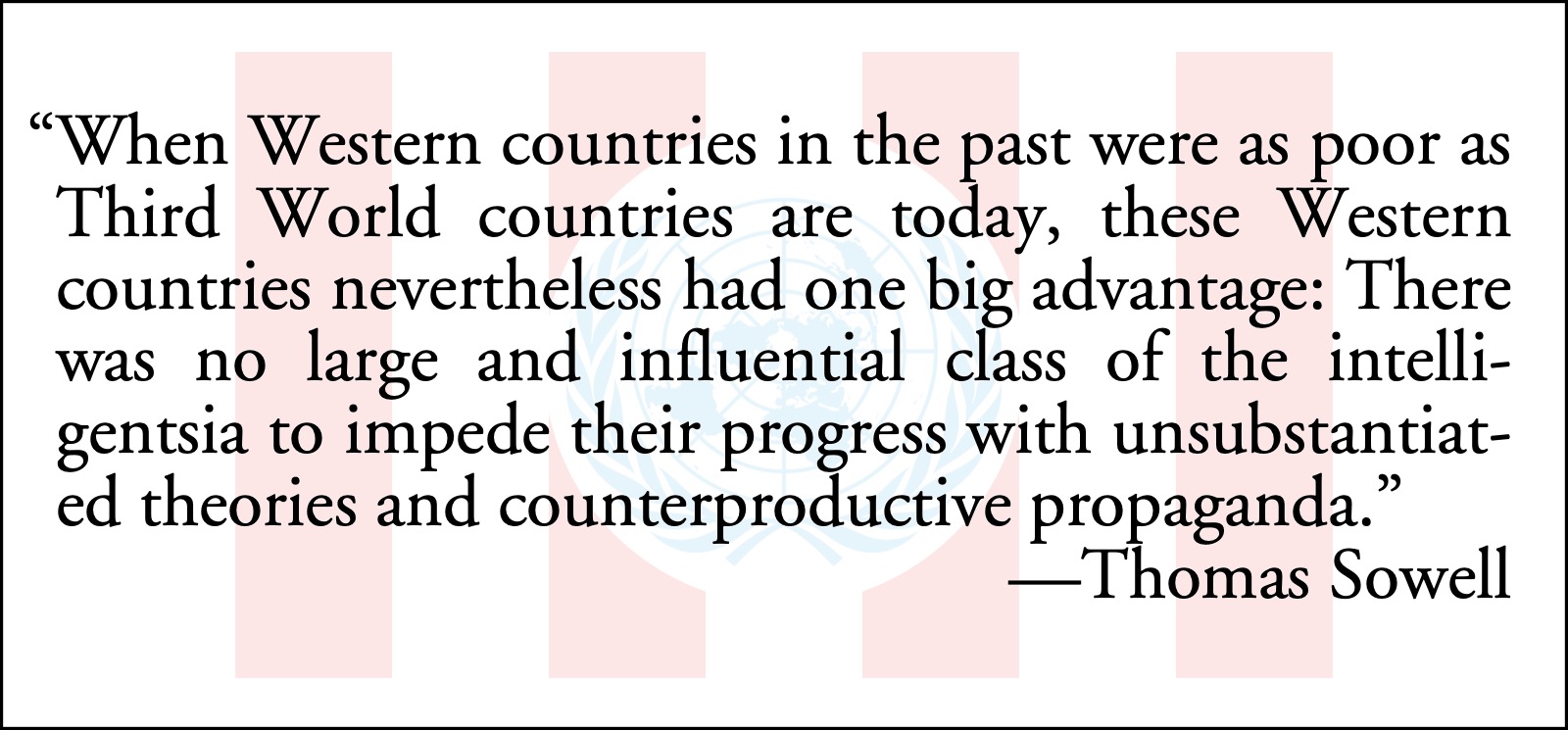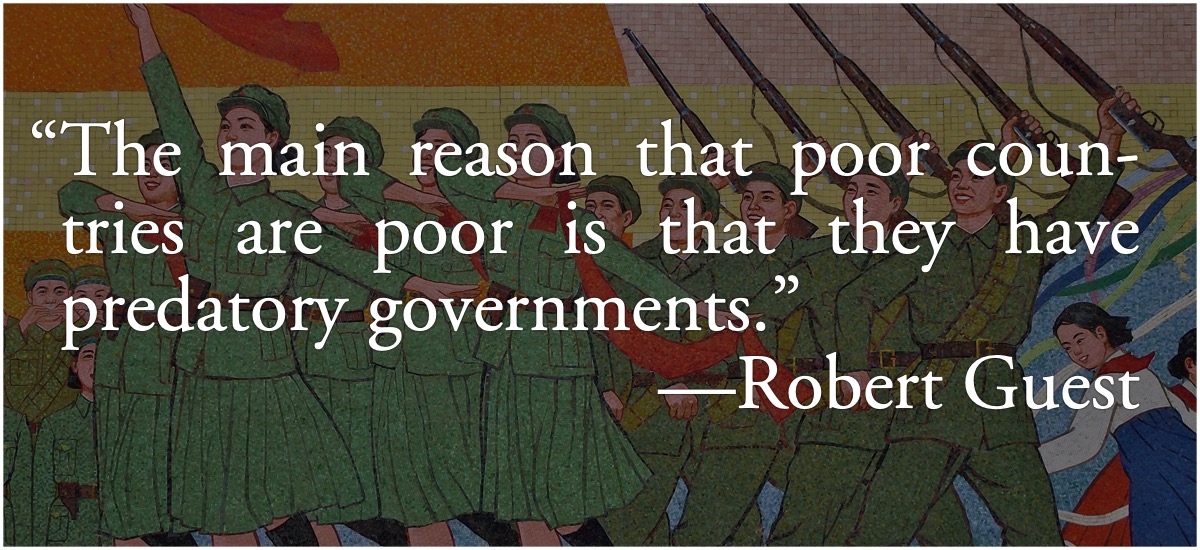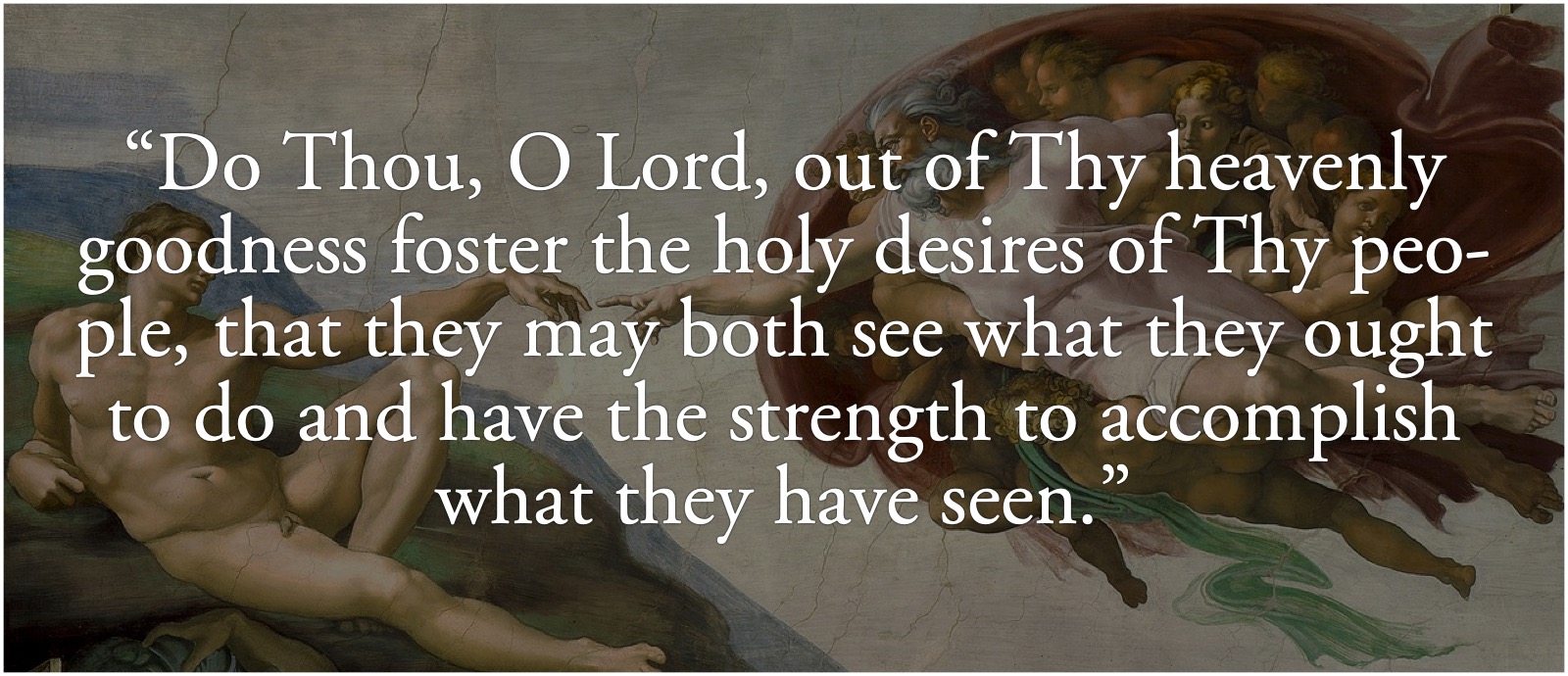Starvation, sharing, and charity

One of the reasons for starvation in the world today is that no one cares. But not in the way most people think about it when they say that no one cares.
The easy assumption, made by everyone from American politicians to so many Catholic charities, is that starvation in the world is a failure of sharing, and we need to convince more people to share. And certainly, sharing is a Good.
But even ignoring fake charities and charities that have devolved into Brazil-like bureaucracies more concerned with their own survival than their ostensible beneficiaries, there is demonstrably enough sharing in the world, especially originating from the United States, to end starvation across the globe. The reason we continue to see starvation is a failure of acceptance.
If the failure of acceptance could be solved—if we could convince foreign governments to accept gifts rather than deny them or, worse, filter them through layers of value-destroying corruption—there would be more than enough sharing already today.
This is true even in, perhaps especially in, the United States, where we can see the stultifying bureaucracy that eats up most of every tax dollar taken from us in the name of sharing with our fellow Americans.
Further, sharing itself would increase if there were greater acceptance of it, if it was obvious that our sharing went to the poor who need it rather than bureaucracies that do not. It’s one thing to share and see a lessening of hunger and to see the poor lift themselves out of poverty because of our aid. It’s entirely another thing to share and see food wasted and rotting, to see money lost in corruption and a Brazil•-level bureaucracy, to see only people with the time to be professional recipients have the time to navigate the welfare system in the United States or the charity system abroad.
At some point, knowingly giving more money to dictators and corrupt bureaucrats changes from charity to a wasteful and deadly form of virtue signaling. Charity has to mean giving effectively or it isn’t charity at all but mere vanity.

But like the drunk and the lamp-post, it’s easier to solve a non-existent sharing problem than to solve the very real acceptance problem. This is true at every level of human interaction. It is human nature to share, and it is human nature to increase sharing when shamed for not sharing enough. But one of the hardest things in my life and, observationally, in other people’s, is to accept gifts given freely and unbidden.
We expect gifts on birthdays, if we celebrate them. We often expect gifts on Christmas even if we don’t celebrate Christmas. But the unbidden gift, the gift out of the blue, so often elicits a knee-jerk “no, I don’t need/don’t want/cannot accept that”.
The world denigrates charity. Our entire entertainment industry denigrates such giving. People who give are objects of ridicule.
Worse, the world whispers a resentment against charity into the ears of those who would benefit most from sharing. People who refuse to accept are heroic, juxtaposed against stereotypical hypocritical givers.
The result is unnecessary hunger and the repression of those whose lives could be improved by giving and helping.
And yet, however hypocritical a particular giver might be, their giving is still giving. What looks like hypocrisy to us could be God using an imperfect tool to do good. We are all, in the final analysis, imperfect. Discouraging those who give imperfectly causes suffering. Tying up giving into bureaucratic mazes and leaching it away by bureaucracy, by grift, and by corruption causes suffering.
“More giving” is the easy road. Actually helping the poor and hungry to accept is the hard way. But it’s the only way by which sharing can be true charity.

In response to How un-Christian is the prosperity gospel?: While I find the prosperity gospel of people like Joel Osteen weird, and am vaguely uncomfortable with it, it does contain an important teaching about God that we often forget: God answers prayers.
- Brazil Criterion DVD•
- Terry Gilliam’s brilliantly-funny 1984-like satire of heroism in the machine.
- Random Thoughts on the Passing Scene, December 21, 2001: Thomas Sowell at Townhall
- “Doing the right thing is fun. If nothing else, it surprises people.”
- Review: Heretics: Jerry Stratton at Jerry@Goodreads
- “Published in 1905, this is a collection of essays about people, and on a common theme of a fashionable contrarianism that isn’t contrarian. Chesterton accuses the elite of his day of worshipping ideas that cannot work (heresy) and avoiding ideas that do work (orthodoxy). He anticipates both Orwell’s Newspeak and Thomas Sowell’s Vision of the Anointed.”
More public assistance
- How many legs does the ACA have?
- If you call public assistance insurance, how many people have insurance? The left wants us to believe that, like Lincoln’s apocryphal dog, the ACA has five legs. But when you call a tail a leg, that doesn’t mean the dog can walk on it.
- A grumpy basic income
- John Cochrane has useful thoughts on Charles Murray’s universal basic income, after the Swiss rejected a very different version.
- Government cheese goes to school
- Government cheese is government cheese, whether it’s a poor food product, poor housing, or poor education.
- The Family Cow
- If you kill the cow for steak today, you won’t have any milk tomorrow. We are digging deep into our national cash cows—taxpayers—and we’re going to soon run out.
- Everybody gets $7,000 a year
- Charles Murray argues that we can vastly reduce the cost of the welfare system and social security simply by giving everyone $7,000 a year plus a health plan.
- Three more pages with the topic public assistance, and other related pages
